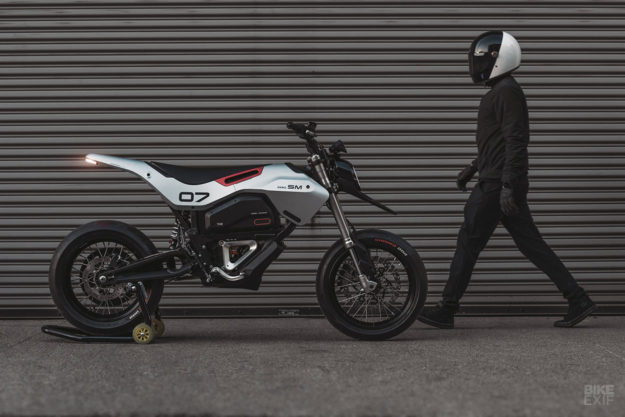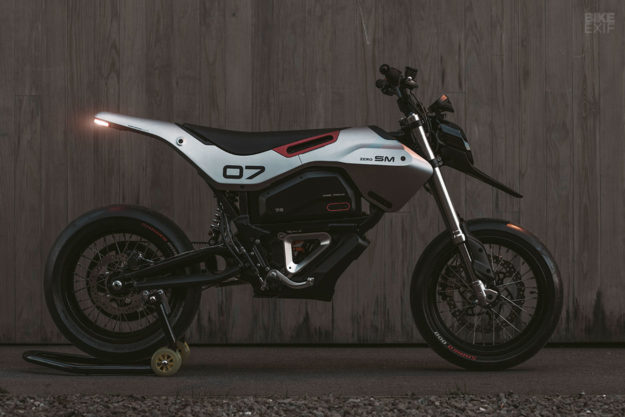
The One Moto Show is a cornucopia of analog delights, gleaming with metalflake and raw, hand-beaten bodywork. But there was an interloper lurking amongst the chrome and carburetors: this futuristic Zero from Huge Moto of San Francisco.
As soon as the Zero was revealed, it starting popping up everywhere on social media. So we dropped a line to Huge Moto’s boss, Bill Webb, to get the story on this surprise hit—and the very 21st century design process.
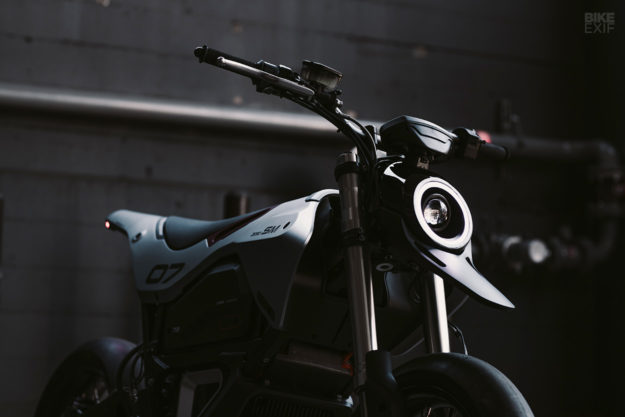
“Zero reached out to us a couple years ago, after you featured our ‘MONO RACR’ Honda CBR,” Bill told us. “We ended up working on some projects together, and hopefully some of our design influence will be seen on the next generation bikes.”
Then Bill asked Zero if Huge could build a custom bike as a side project. A 2018 FXS soon arrived, along with its CAD files.
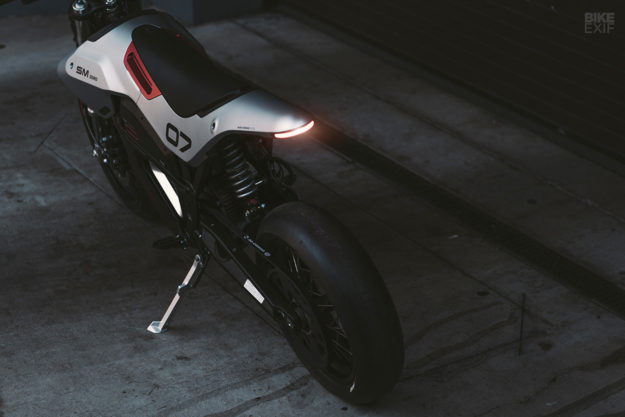
The FXS is Zero’s entry-level model: a commuter bike with supermoto styling that costs just $10,495—a little less than a Sportster 1200 Custom. Range in the city is somewhere up to 100 miles (you can get models with a much larger range) and weight is a commendable 293 lb (133 kg).
Bill and his team slowly began to work on concepts for the custom. As the bike began to take shape in CAD, there was growing interest from Zero HQ in helping to finish the FXS and get a public reaction.
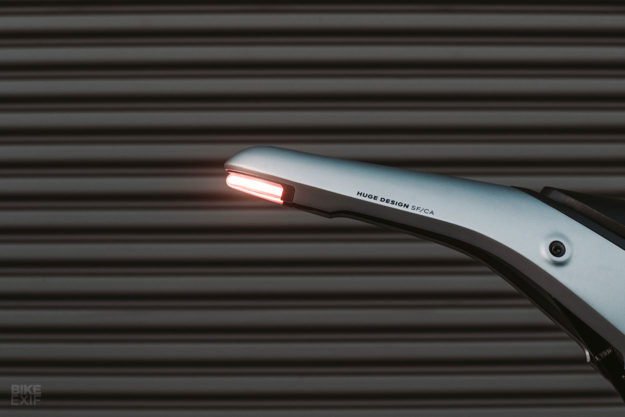
Brian Wismann, Zero’s VP of product development, heard that the tire company Shinko was looking for a bike to display at The One Moto Show. So the famous Portland show became the target, and Huge fired up their computers.
“It’s far from the sexiness of welding and hammering away in a fabrication shop,” Bill says. “The Zero was mostly conceived sitting at a CAD workstation, after hours, and switching between hardcore 3D design and loose napkin-grade sketches.”
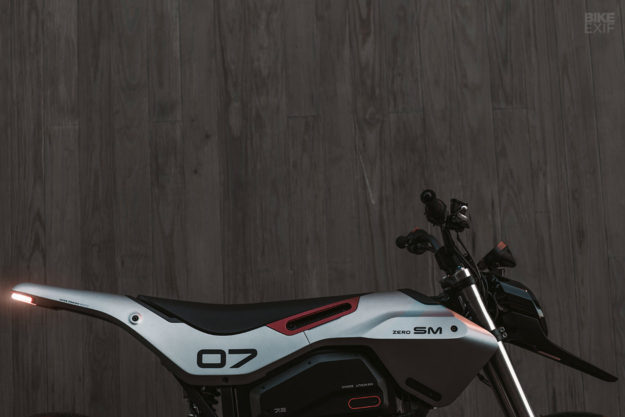
The design goal was to create a flow across the top of the bike, drawing eyes away from the electric components and frame, and focusing more attention and ‘visual weight’ on the front end.
“A design that feels futuristic, seamless and lightweight,” Bill adds. “Bruce Lee was our philosophical inspiration: Lean muscularity with agility and speed!”
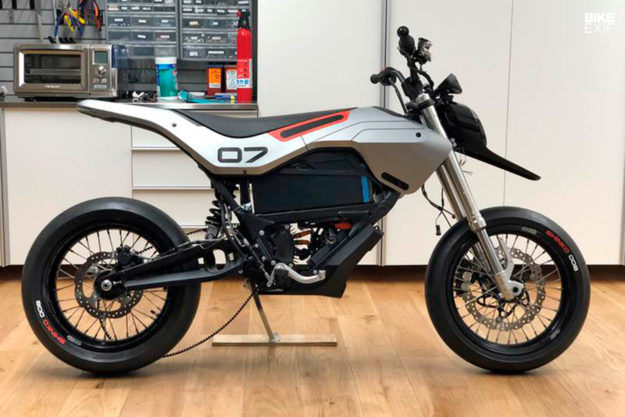
The first basic design was fully detailed in CAD, machined out of ABS thermoplastic polymer, and then mocked up on the bike (above).
“Once we got the parts back, it was clear which aspects were working and which were not,” says Bill. The design was tweaked until every millimeter and every angle felt ‘right.’
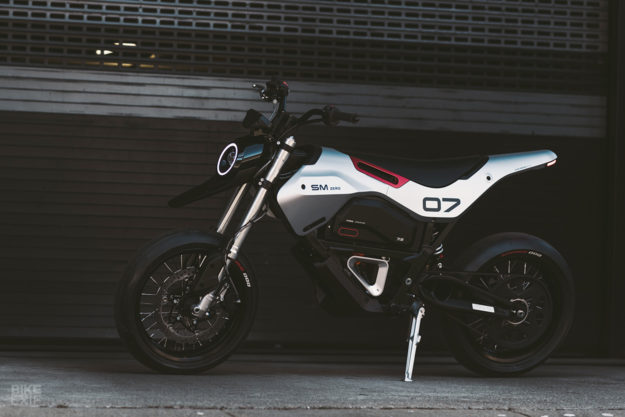
It certainly looks good to us—and we see hints of the Husqvarna ‘Pilens around the ‘tank’ area too. (Maybe these ‘shoulders’ on tank covers will become the defining design aesthetic of the 2010s?)
Attention then switched to the lower frame section, below the bodywork. “The biggest challenge with electric drivetrains is the lack of visual interest,” says Bill.
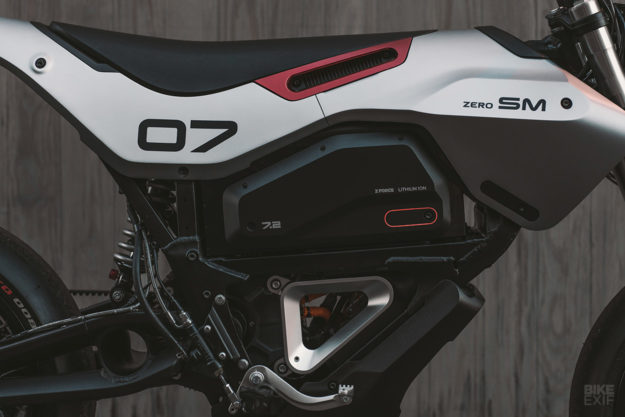
“You’ve got big rectangular shapes and flat, unbroken surfaces don’t evoke the same feeling of an air-cooled cylinder head or clutch cover.”
New, dark-colored panels now flow with the upper body, and there’s a belly pan lower down—not only to protect the underside, but also to add more visual weight to the front of the bike.
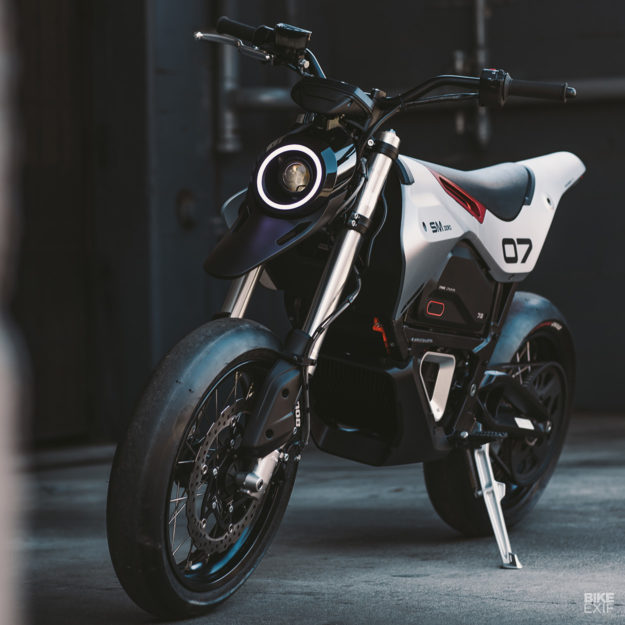
The styling isn’t the only change to this FXS, though. You obviously can’t upgrade the carbs or fit a free-flowing exhaust system, and the brief forbade cutting into the frame.
So this FXS gets a fillip from a high-end Fox Racing shock, and new wheels all round: 17-inch Sun rims custom laced onto off-road hubs from the Zero FX. “I’d guess they are significantly lighter than standard,” says Bill. “They are made for racing, and the wheel builder specializes in supermoto bikes.”
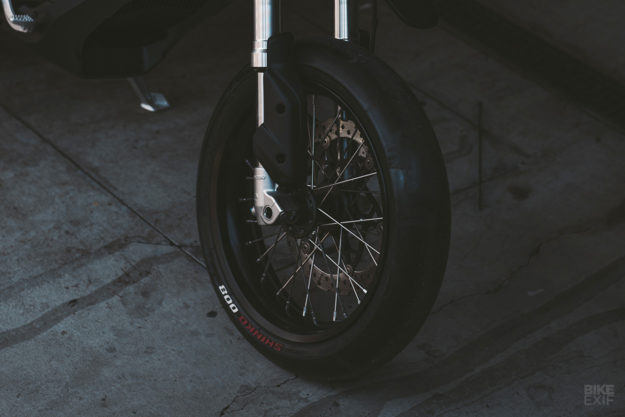
According to reviewers, the Zero FXS is a blast to ride. And although the bike looks perfectly acceptable in stock form, the new design work has lifted it to a whole other level.
“It’s a design that takes some of the ‘raw’ influences from gas bikes and mixes them with the seamlessness, solidity and cleanliness of electric,” says Bill. And we’d agree 100%.
Any chance of releasing this as a kit, chaps?
Huge Moto | Facebook | Instagram | Zero Motorcycles | Images by Aaron Brimhall
